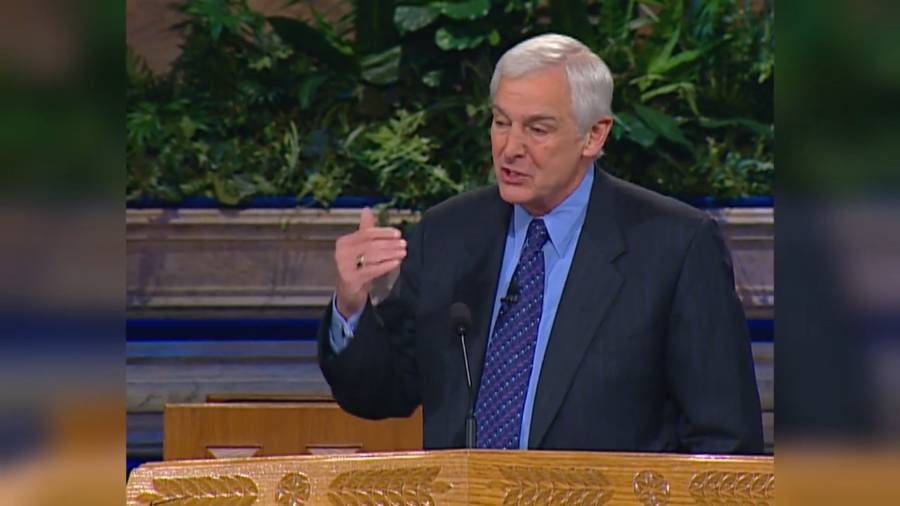
It is, perhaps, the most intimidating part of supporting a friend who has lost a loved one: What do we say to them?
“I’m sorry” often feels overused and empty. “They’re in a better place now” is vague and potentially misleading. It is hard to see someone we love in the grip of loss and not know how to encourage them through it. It is hard for us to experience that sort of loss ourselves.
God’s Word reminds us that there is a fundamental key to coping with grief: hope. Because of Jesus, we do not have to endure grief without the promise of hope (1 Thessalonians 4:13). Every person who trusts Jesus Christ as their personal Lord and Savior passes into eternal life. That hope is the foundation on which we can encourage each other and ourselves when we struggle with loss.
Hope for the Departed
Peter wrote his final letter shortly before his execution. He wasn’t discouraged; he was looking forward to the future. He spoke of “looking forward to these things” and “[looking] for new heavens and a new earth in which righteousness dwells” (2 Peter 3:13–14).
Life is full of hardships and heaviness. We have the promises of God to help us in difficult days, and we have the Holy Spirit within us. But we’ll soon put aside the tent of our earthly body, and what a relief! Goodbye hardship and heaviness. Goodbye trials and troubles. Hello Jesus! Hello heaven! Hello golden streets, glorified bodies, endless days, and the fresh air of New Jerusalem! We are God’s children and we will live forever in His presence, healed of our brokenness: physical, mental, and emotional.
Part of grieving involves the immense sorrow we feel when we watch loved ones pass away. In that sorrow, we can cling to the assurance that in eternity their momentary pain is all but forgotten. They have passed into the presence of Almighty God where they will enjoy endless fellowship with Him.
Hope for the Bereaved
When his wife, Martha, died in 1782, President Thomas Jefferson didn’t leave his bedroom for three weeks, he was so overcome with grief. Some of us can relate to the depth of Jefferson’s sense of loss. Sometimes the pain is so intense we feel like giving up.
We will see and feel pain in this life—being a Christian doesn’t change that. But the message of Scripture is that we can respond to painful experiences with hope that is rooted in a future beyond this life.
During difficult times, the hope of eternity gives us strength. We can thank God that He has provided an eternal home where death, sorrow, crying, pain—all the “former things”—will have “passed away” forever (Revelation 21:4). That promise sustains us now. When we view today through the grid of eternity, the sting of grief is dulled by His power and love. Consistently meditating on God’s redemption and our secure future in heaven has the power to set us free when grief is holding us back.
Hope in the God of All Comfort
In reflecting on Jefferson’s response to his wife’s passing, one historian noted that he “never could come to terms with grief.”1 Jefferson believed in an impersonal God; in other words, a God who created the world but then withdrew, neither overseeing it nor caring about His creation.
However, Christianity teaches that the same God who created the world cares about its every detail—the sparrows in the sky (Matthew 10:29), the lilies in the field (Matthew 6:28—29), and the hairs on our head (Luke 21:18).
Far from being lost orphans, we are His adopted sons and daughters. We belong to Him, and He delights in using us for His glory. To that end, God comforts us in our time of tribulation so that we can in turn comfort others (2 Corinthians 1:3–4). When we find ourselves having to endure unbearable pain and heartache, He promises to be right there with us. “When you pass through the waters, I will be with you; and through the rivers, they shall not overflow you. When you walk through the fire, you shall not be burned, nor shall the flame scorch you” (Isaiah 43:2).
Grieving is a natural and healthy process.
Whether we are walking alongside someone who is grieving or experiencing the grief ourselves, we can find peace in the unfailing hope that is in store for those who have passed and those who remain. Most importantly, we can cast all our cares upon the Lord. He has promised to go with us every step of the way, and we’ll never face floods or fires without His grace providing the strength we need and the guidance necessary to go forward. He knows the way through the wilderness, and He leads us one step at a time.
1Thomas Jefferson—A Film by Ken Burns (DVD edition). The American Lives Film Project, Inc., 1996.
















